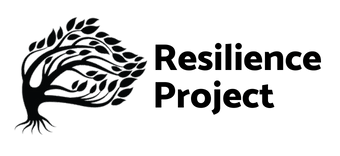Recently Added
Tags
2020 Webinar
2021 Webinar
Climate
climate change
collapse
community resilience
conflict
COVID-19
Ecology
Economics
education
energy
Engery Systems
enviromental sustainablity
Featured
Featured Video
food systems
Geo Politics
Ghastly Response Discussion
Joan Diamond
Kim Stanley Robinson
landscape
Michael Lerner
Michael Webber
Nate Hagens
nongovernmental organization
Paul Ehrlich
Pete Myers
Population
portrait
Post Carbon Institue
Power Grid
Raphaël Stevens
resilience
resource
Richard Hienberg
Russel Chisholm
Shanna H. Swan
Social Systems
Storms
Texas
The Cascade Institute
Thomas Homer-Dixon
Underestimating the Challenges of Avoiding a Ghastly Future
website

Lean Logic: A Dictionary for the Future and How to Survive It
in BooksDavid Fleming’s Lean Logic: A Dictionary for the Future and How to Survive It leads readers through a stimulating exploration of fields as diverse as culture, history, science, art, logic, ethics, myth, economics, and anthropology, comprising four hundred and four engaging essay-entries covering topics such as Boredom, Community, Debt, Growth, Harmless Lunatics, Land, Lean Thinking, Nanotechnology, Play, Religion, Spirit, Trust, and Utopia.
blog
in WebsiteOn this blog, Nate Hagens writes: I’m a social critic, political/cultural commentator and artist. The modern industrial world is sleepwalking towards the cliff of economic and ecological ruin. Most are oblivious to the paradigm shift that is occurring, but some are starting to awaken to the false stories our culture has told itself. My objective is to highlight important news stories and essays to find the hidden truth behind what Joe Bageant called the American Hologram.
Global Catastrophic Risks
in FundersThis webpage published by the Open Philanthropy Project highlights future global catastrophic risks such as pandemics and risks from advanced artificial intelligence. The Open Philanthropy Project offers grants in relation to these issues.
The Dark Mountain Project
in WebsiteIn 2009, two English writers published a manifesto. Out of that manifesto grew a cultural movement: a rooted and branching network of creative activity, centred on the Dark Mountain journal, sustained by the work of a growing gang of collaborators and contributors, as well as the support of thousands of readers around the world. The Dark Mountain Project is looking for other stories, ones that can help us make sense of a time of disruption and uncertainty.
Centre for the Study of Existential Risk
in WebsiteNew and largely unstudied risks are associated with powerful emerging technologies and the impacts of human activity, which in the worst case might pose existential risks. The Centre for the Study of Existential Risk wants to reap the enormous benefits of technological progress while safely navigating these catastrophic pitfalls.
Can a collapse of global civilization be avoided?
in ArticlesThis 2013 article by Paul R. Ehrlich and Anne H. Ehrlich explores the possibility of global collapse. Environmental problems have contributed to numerous collapses of civilizations in the past. Now, for the first time, a global collapse appears likely. Overpopulation, overconsumption by the rich and poor choices of technologies are major drivers; dramatic cultural change provides the main hope of averting calamity. In Proceedings of the Royal Society B: Biological Sciences.
Are we on the road to civilisational collapse?
in ArticlesIn this article, collapse expert Luke Kemp says studying the demise of historic civilisations can tell us how much risk we face today. Worryingly, the signs are worsening. From the BBC.
Resilience: Why Things Bounce Back
in BooksIn times of upheaval, why do some people, communities, companies and systems thrive, while others fall apart? That’s the question at the heart of an exciting new field, and an urgent new agenda for the 21st century. In Resilience, Andrew Zolli and Ann Marie Healy bring you important scientific discoveries, pioneering social innovations, and vital new approaches to constructing a more resilient future. You may never look at your world, your organization, or yourself the same way again.
The Community Resilience Reader: Essential Resources for an Era of Upheaval
in BooksThe Community Resilience Reader: Essential Resources for an Era of Upheaval, Edited by Daniel Lerch, combines a fresh look at the crises humanity faces, the essential tools of resilience science, and the wisdom of activists, scholars, and analysts working on the ground.
National and global efforts have failed to stop climate change, transition our society from fossil fuels, and reduce inequality. We must now confront these and other challenges by building resilience at the level of communities. The Community Resilience Reader: Essential Resources for an Era of Upheaval (Island Press, 2017) combines a fresh look at the crises humanity faces, the essential tools of resilience science, and the wisdom of activists, scholars, and analysts working on the ground. From Post Carbon Institute, producers of the award-winning The Post Carbon Reader (Watershed Media, 2010), The Community Resilience Reader is a valuable resource for community leaders, students, and concerned citizens.
Collapse: How Societies Choose to Fail or Succeed
in BooksCollapse: How Societies Choose to Fail or Succeed by Jared Diamond includes four sets of studies. Seven chapters discuss some of the clearest, most familiar, most striking examples of past collapses: the ends of Polynesian societies on Henderson and Pitcairn Islands, where everybody either did abandon the island or else ended up dead; the end of the Viking settlements on Greenland, which similarly disappeared completely; the disappearance of Anasazi settlements in desert areas of the U.S. Southwest; the decline and abandonment of Classic Maya cities in the Southern Maya lowlands, while Maya cities survived outside those southern lowlands; and the decline of Easter Island’s Polynesian society, famous for erecting giant stone statues.